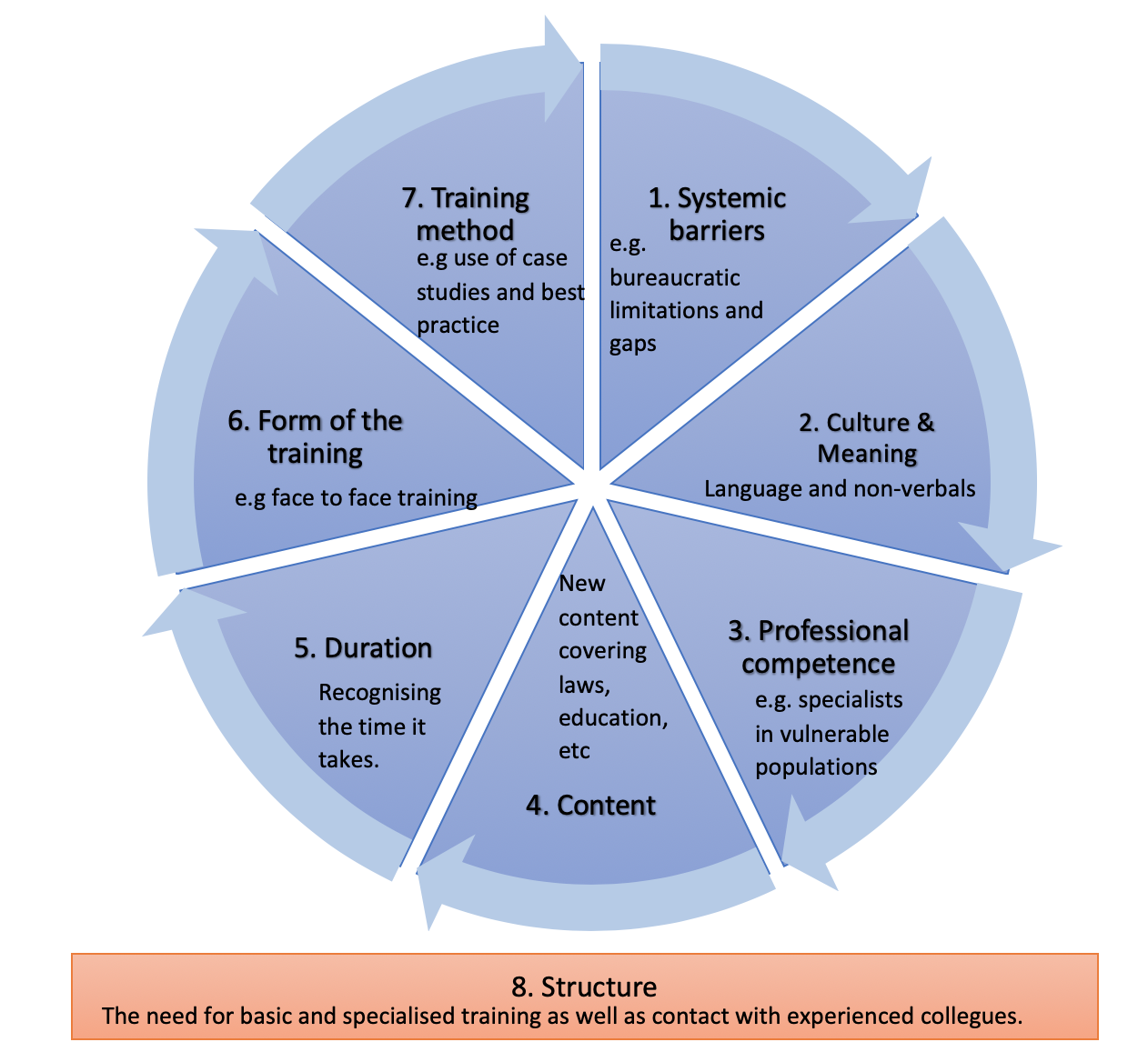What are the barriers and training needs of Healthcare Professionals who work with migrant children?
This was the exact question we set out to answer through our EU-VET Care Qualitative Study. We found eight things that need increased attention to allow for the best care to be provided to migrant and refugee children.
The Study
The objectives of our 2019 Qualitative study were to gain a deeper understanding of:
- barriers and facilitators related to professionals’ daily practice with migrant/refugee children,
- their perceptions and attitudes towards training on migrant/refugee children care, and
- their needs towards training on migrant/refugee children care.
In order to collect high quality and representative information focus groups were conducted in each of the five EU member states comprising our project consortium: Greece, Cyprus, Italy, Spain and Germany.
In total, 99 people participated in 15 sessions across 5 countries.
Results

The most important take aways are that training for physicians, psychologists, social workers and cultural mediators/translators in the field should include legal frameworks, detailed specific protocols for various situations, collaboration, clear refferal pathways, bi-proxy approaches, cultural education, trauma training, practitioner wellbeing and stess management.
Additionally, psychologists and social workers reported the desire for training on mental health issues, teenager/ transitional age needs and of initiatives aimed at psychosocial support.
Coming next
All of this information informs our baseline as we begin to develop and build new teaching materials and tools to address these information gaps.
Our methodology covers six phases and will result in the development of interdisciplinary and specialised training packages.
More Information?
To access more information about the focus groups, questions. Methodologies, discussion guides and data analysis contact us at info@euvetcare.org.


 The European Commission support for the production of this publication does not constitute an endorsement of the contents which reflects the views only of the authors, and the Commission cannot be held responsible for any use which may be made of the information contained therein.
The European Commission support for the production of this publication does not constitute an endorsement of the contents which reflects the views only of the authors, and the Commission cannot be held responsible for any use which may be made of the information contained therein.